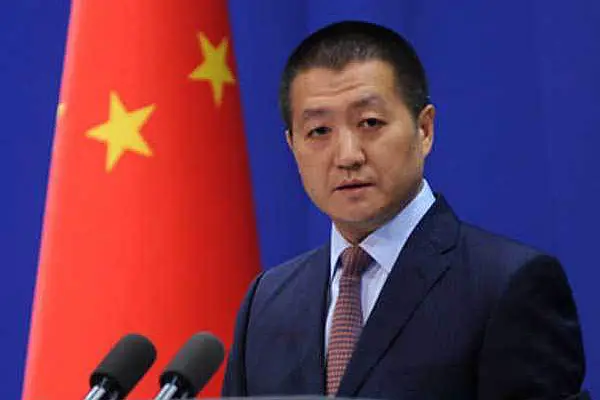Mohamed Morsi, affiliated to banned Muslim Brotherhood group, is the first Egyptian president who faces the execution verdict, after a criminal court sentenced him to death on Saturday.
The reign of the ousted president Morsi, who was also the first elected civilian president in Egypt, witnessed unprecedented severe polarization and continuous political crisis that caused his topple by military-backed mass protests against his rule on June 30, 2013.
An Egyptian court on Saturday sentenced Morsi and 106 supporters of his Muslim Brotherhood to death over a mass jail break after Jan. 25, 2011 which ousted the long time ruler Hosni Mubarak.
Morsi, 64 years old, joined Muslim Brotherhood ideologically in 1977, and organizationally by the end of 1979. He was appointed a member in the group politburo in 1992.
During his one year in office, Egypt witnessed continuous disputes between him and the Brotherhood from one side and the entire state institutions, whether army, judiciary, police, media and political sides from the other side.
The crisis began when Morsi breached an agreement with the political forces, publically known as "Fairmont Agreement," and formed with his government a constitutional panel to daft the constitution, without consultation with the political parties. Morsi's move was seen as exclusionary policies that haven't coped with the principles of the 2011 revolution that toppled his predecessor.
The Islamist leader started his political life as member of the parliament in 2000, and was assigned as speaker for the Brotherhood bloc in the Lower Chamber of the Parliament (the People's Assembly).
Brotherhood Shura Council elected him on June 30, 2011 as chairman of the group's political arm (Freedom and Justice Party).
On April 7, 2012, the Freedom and Justice Party in coordination with the Supreme Guide of the Brotherhood pushed Khairat al-Shater, the group business tycoon, as a presidential candidate and Morsi as a spare nominee, in precautionary procedures, fearing some legal obstacles will hinder Shater approval as presidency runner.
The group's fears came true. Presidential Supreme Electoral Commission dismissed Shater and accepted Morsi for legal reasons.
Morsi won the presidential elections with 51.7 percent of the votes compared to his rival, former Prime Minister Ahmed Shafiq, who served as an aviation minister under Mubarak.
Morsi officially took office on June 30, 2012. He promised the people in his first speech to the nation to be a president for all, but liberal, leftist, youth groups saw Morsi and his groups are controlling the country and sought discrimination policies against liberals.
The protests escalated against his rule on Nov. 22, 2012 after he issued a constitutional declaration which entitled him with absolute powers, the straw that broke his regime back, in addition to criticism against his illegal toppling of prosecutor general and amid rejection of the political powers of his cabinet headed by the Islamist Hisham Qandil.
That constitutional declaration has pressed the political factions to form National Salvation Front headed by leftist politician Hamdeen Sabahi, Sayd al-Badwi, Head of al-Wafd party, Amro Moussa, former foreign minister and Mohamed elbaradei, Nobel Prize winner and leading Egyptian political figure.
Few months later, Tamarod, a youth movement, was founded and called for withdrawing trust from Morsi and holding earlier presidential elections, and then urged people to flock into squares to topple the Islamist leader based on its gathering of 20 million signatures against Morsi.
The citizens responded to the youth movement calls and gathered in millions in iconic-Tahrir square and most of the country's biggest squares.
Following the anti-Morsi mass protests, the army in a communiqué gave Morsi 48 hours to respond to the people's demands, after the Brotherhood foiled all mediation efforts between Morsi and political powers to end the political crisis.
The opposition movements considered the army statement as an alarm, while Morsi in a public speech refused holding earlier elections asserting he is the legitimate president.
On July 3, 2013, Morsi was ousted after a meeting between the political, religious, youth powers and the leaders of the armed forces, during which a roadmap was announced to administer the state affairs.
Morsi, the fastest president to leave office, was toppled one year after he took the presidential oath. During his time, the presidency institution lost much of its prestige due to Morsi's contradicted decisions and increasing protests, violence and murder.
In September 2013, the prosecution referred Morsi to criminal court over charges of inciting violence and murder during the protests outside the presidential palace by the end of 2012.
Currently he faces four trials, for inciting violence and murder he was convicted 20 years in jail, for jailbreak he got death sentence, and other two still waiting verdicts: insulting judiciary and spying for Qatar.
In his trials, Morsi insisted he is the legitimate president and described his toppling as a military coup.
The military-backed authorities dispersed Morsi's supporters' two main camps in Cairo on Aug. 14, 2013. Waves of violence and terrorist attacks escalated in the country following the security crackdown on the Islamists that killed nearly 1,000 and put thousands in jails.
In retaliation, the militants Islamist launched anti-security operation based mainly in the restive Sinai and then crept into the other cities. Hundreds of police and army men were killed in terrorist operations.
Few hours after announcing the death penalty verdict against Morsi, four people, including three judges, were killed in the northern Sinai city of al-Arish when militants shot at their vehicle. The interior ministry said a policeman was also killed by gunmen near Cairo.
The National Alliance for Supporting Legitimacy, a pro-Morsi bloc, has called Saturday for extended revolutionary protests until July 3, the anniversary for Morsi's ouster, under the title of "victory or retaliation."
The alliance said in a statement it will continue its path till the fall of the current regime, and liberate their legitimate president. Enditem
 简体中文
简体中文

